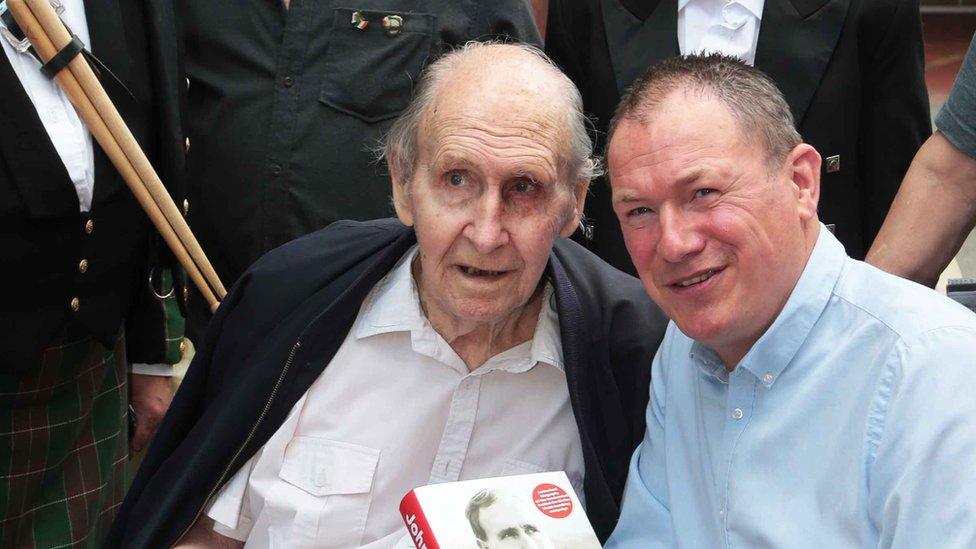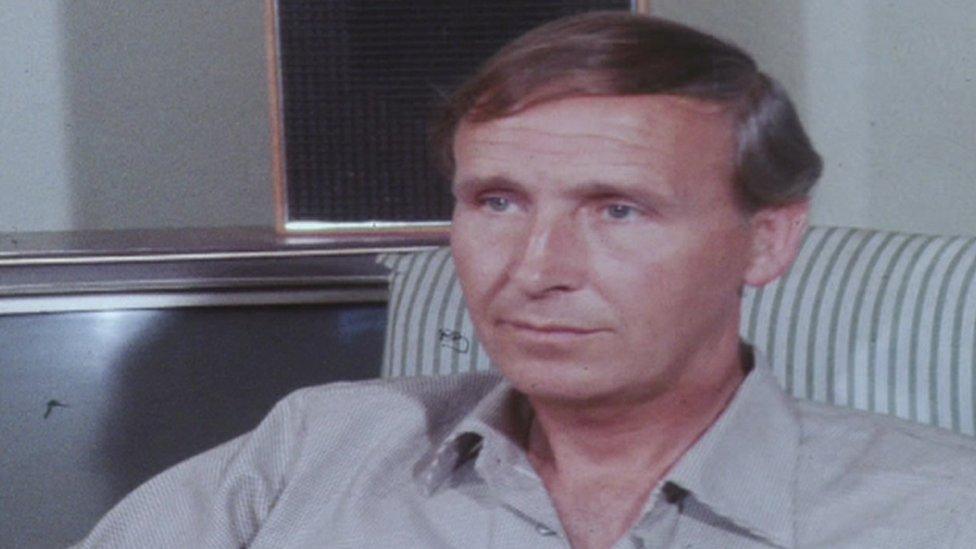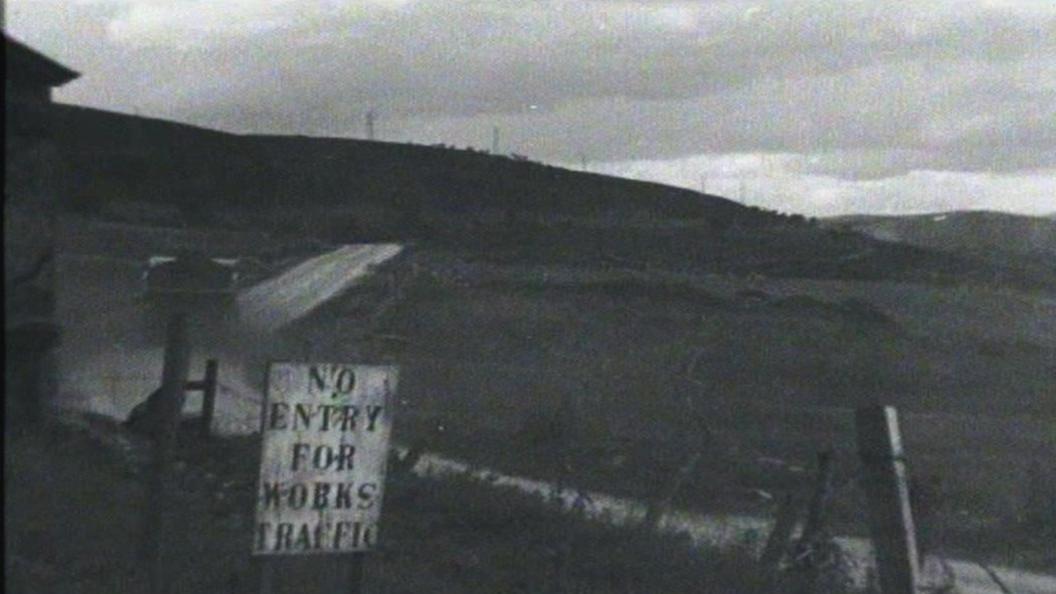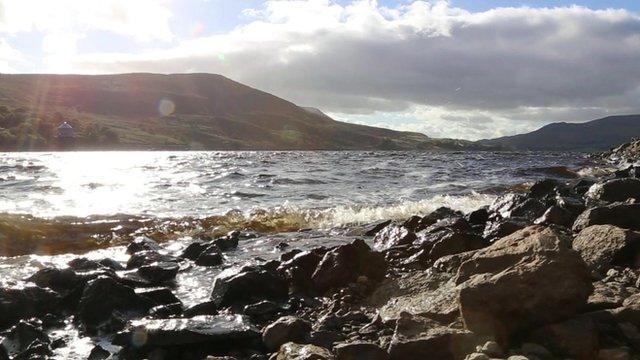Welsh bomber who attacked Prince Charles' investiture dies at 87
- Published

John Jenkins in 1965, when he was a sergeant with the Army's Dental Corp
The mastermind of a Welsh nationalist bombing campaign which targeted Prince Charles's investiture has died aged 87.
John Jenkins organised explosions to disrupt the Prince of Wales' ceremony in Caernarfon in 1969.
The former leader of Welsh paramilitary group Mudiad Amddiffyn Cymru (MAC) was jailed for 10 years in 1970.
He later became a social worker and died "peacefully" in his sleep at Wrexham Maelor Hospital, his biographer said.
Mr Jenkins, a former Army officer, was radicalised by the drowning of Tryweryn and the Aberfan disaster.
He was involved in planning a bombing on the eve of Prince Charles investiture.
A device exploded unexpectedly, killing two members of the MAC in Abergele.

John Jenkins with Wyn Thomas at the launch of his biography
The following day two more bombs were planted in Caernarfon.
One exploded in a police constable's garden as a 21-gun salute was fired.
Another was planted near the castle but did not go off.
It was found by a 10-year-old boy who was left seriously injured when it exploded.
His biographer, Dr Wyn Thomas, said he was a man of "fierce principle who suffered much for a cause he believed in, and for a country he loved dearly."
Writing on Facebook, Dr Thomas said Mr Jenkins died "peacefully" at Wrexham Maelor Hospital on Thursday after living an "incredible life."
His death marked "the end of an era" in Wales and the UK's political history, he said.

John Jenkins said he had been put under pressure to try and assassinate Prince Charles
Dr Thomas said it was likely Mr Jenkins' death would be met with "indifference" by some.
"To others, John Jenkins is a hero," he said.
Speaking last year Mr Jenkins, who led MAC whilst still a non-commissioned Army officer, told WalesOnline he had been put under pressure to try and assassinate Prince Charles.
"One of the hardest fights I ever had was with our own people," he said.
"I spent a lot of time in the weeks before the investiture travelling around in an army civilian car, reining people in.
"They were becoming more, well, savage as the ceremony approached."
He said he stressed his view that an assassination would achieve "nothing" politically, though be believed it would have been "possible".
Related topics
- Published21 October 2015

- Published21 October 2015
